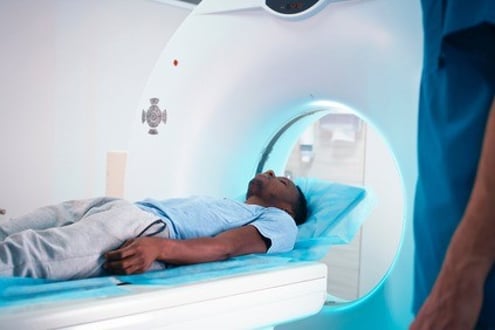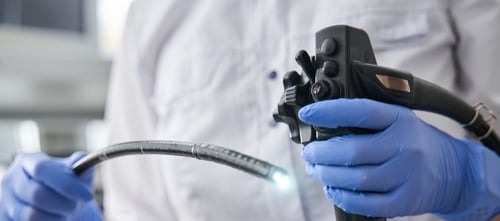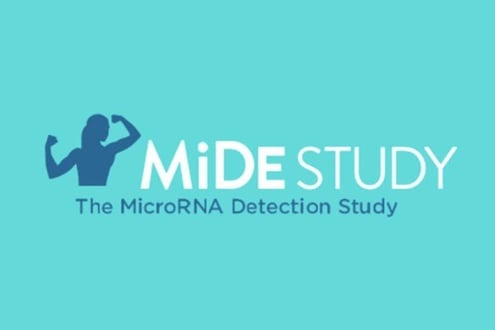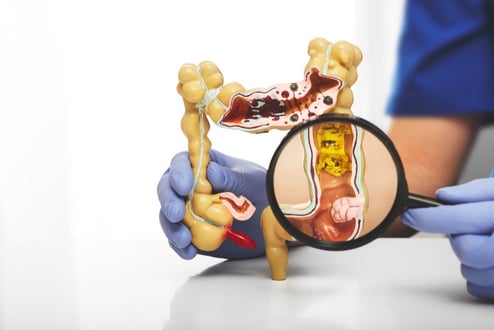MLH1: Risk Management
Risk Management for People with an Inherited Mutation
Experts at the National Comprehensive Cancer Network (NCCN) created guidelines for people with an mutation to manage their cancer risk.
This section covers risk-management guidelines for the following cancers:
We recommend that you speak with a genetics expert who can look at your personal and family history of cancer and can help you decide on a plan for managing your risk.
People with an mutation may also qualify for clinical trials looking for more effective screening or prevention for cancer.
Get notified when updated information becomes available.
SIGN UP FOR CONTENT UPDATESRisk management guidelines
NCCN recommends that all people with an inherited mutation receive education on the signs and symptoms of Lynch syndrome-related cancers. NCCN guidelines for specific cancers are listed below. You can learn more about risk management options in our section on Screening and Risk Reduction by Cancer Type.
|
Beginning Age |
Recommendation |
|
20-25 (or 2-5 years before the earliest age of colon cancer in the family, if diagnosed before age 25) |
High quality colonoscopy every 1-2 years. Speak with your doctor about whether your screenings should be yearly or every two years. Men, people over age 40, and people with a personal history of colon cancer or colon may benefit most from yearly screenings. |
|
No set age |
Daily aspirin can decrease the risk for colorectal cancer. The best dose and timing for aspirin is not known. Speak with your doctor about the benefits and risks, best timing and dose. |
|
Source: NCCN Guidelines: Genetic/Familial High-Risk Assessment: Colorectal, Endometrial, and Gastric; v. 1, 2025. |
|
|
Beginning Age |
Recommendation |
Additional Information |
|
No set age |
Endometrial cancer can often be caught early based on symptom awareness followed by a biopsy. Learn to be aware of the symptoms of endometrial cancer and immediately report any symptoms to your doctor. Keep a diary of menstrual cycles in order to detect any changes in bleeding. |
Symptoms of endometrial cancer include:
|
|
30-35 |
Discuss the benefits, risks and costs of an endometrial biopsy every 1-2 years with your doctor. |
Endometrial cancer screening does not have proven benefit in individuals with . However, endometrial biopsy is an accurate test for finding cancer. |
|
After menopause |
Discuss the benefits, risks and costs of regular endometrial cancer screening through transvaginal . |
Endometrial cancer screening does not have proven benefit in individuals with . Despite this, some people prefer to undergo regular screening through transvaginal . |
|
After age 40 (or personalized based on childbearing plans) |
Discuss the benefits, risks and costs of a risk-reducing hysterectomy (surgical removal of the uterus) and (surgical removal of the ). |
|
|
No specified age |
Speak with your doctor about the benefits, risks and timing of oral contraceptives or intrauterine devices (IUD). |
Oral contraceptive pills (birth control) and intrauterine devices (IUD) may lower the risk for endometrial cancer associated with . |
|
Source: NCCN Guidelines: Genetic/Familial High-Risk Assessment: Colorectal, Endometrial, and Gastric; v. 1, 2025. |
||
|
Beginning Age |
Recommendation |
Additional Information |
|
No set age |
Be aware of ovarian cancer symptoms. Report any of the following symptoms that persist for several weeks and are a change from normal to your doctor. Routine ovarian cancer screening using transvaginal and a blood test has not shown benefit and is not recommended. |
Symptoms of ovarian cancer include:
|
|
After completion of child-bearing |
Speak with your doctor about the benefits, risks and timing of risk-reducing removal of ovaries and (). |
|
|
No set age |
Speak with your doctor about the benefits, risks and timing of oral contraceptives or intrauterine devices (IUD). |
Oral contraceptive pills (birth control) and intrauterine devices (IUD) may lower the risk for ovarian cancer associated with . |
|
Source: NCCN Guidelines: Genetic/Familial High-Risk Assessment: Colorectal, Endometrial, and Gastric; v. 1, 2025. |
||
Pancreatic cancer
There are two tests that are used to look for pancreatic cancer in high-risk people.
- MRCP (Contrast-enhanced magnetic resonance cholangiopancreatography) is a special type of imaging that looks closely at the pancreas, liver, gallbladder, bile duct and pancreatic duct to find abnormalities such as cancer.
- EUS (Endoscopic ) involves passing a tiny scope with an attached probe down the esophagus to the stomach. This allows doctors to look closely at the pancreas.
|
Beginning Age |
Recommendation |
|
|
50 (or younger based on family history) |
For mutation carriers with a first- or second- degree relative with pancreatic cancer
|
|
|
Source: NCCN Guidelines: Genetic/Familial High-Risk Assessment: Breast, Ovarian; Pancreatic and Prostate; v. 1, 2026. |
||
|
Beginning Age |
Recommendation |
|
|
30-35 |
For mutation carriers with a relative with bladder, kidney or ureteral cancer
|
|
|
Source: NCCN Guidelines: Genetic/Familial High-Risk Assessment: Colorectal, Endometrial, and Gastric; v. 1, 2025. |
||
|
Beginning Age |
Recommendation |
|
|
40 |
Have a conversation with your doctor about the potential benefits, risks, costs and limitations of screening for cancer.
|
|
|
Source: NCCN Guidelines: Cancer Early Detection; v. 1, 2025. |
||
|
Beginning Age |
Recommendation |
|
|
30-40 (or younger based on family history) |
Begin stomach cancer screening using a procedure known as EGD (esophagogastroduodenoscopy) and repeat every 2-4 years.
|
|
|
Source: NCCN Guidelines: Genetic/Familial High-Risk Assessment: Colorectal, Endometrial, and Gastric; v. 1, 2025. |
||
|
Beginning Age |
Recommendation |
|
|
No set age |
Learn the signs of brain cancer and report any symptoms to your doctor. |
|
|
Source: NCCN Guidelines: Genetic/Familial High-Risk Assessment: Colorectal, Endometrial, and Gastric; v. 1, 2025. |
||
|
Beginning Age |
Recommendation |
|
|
No set age |
Talk with your doctor about the benefits of having a skin exam every 1-2 years with an expert trained in finding skin changes related to |
|
|
Source: NCCN Guidelines: Genetic/Familial High-Risk Assessment: Colorectal, Endometrial, and Gastric; v. 1, 2025. |
||
Other cancers
There isn’t enough research to show that people with an mutation benefit from extra screening or prevention for other types of cancer. Because of this, experts recommend following general population screening guidelines and considering your family history when managing these risks. National guidelines exist for screening the following cancers:
Participate in Prevention Research
Below are some of our featured research studies looking at new ways to screen for, prevent or intercept cancer in people with mutations. To search for additional studies, visit our Search and Enroll Tool.
Vaccine for People at High Risk for Pancreatic Cancer
Clinicaltrials.gov identifier: NCT05013216
Using a Shorter Type of MRI as a Screening Tool for People at High Risk for Prostate Cancer
Clinicaltrials.gov identifier: NCT05384535
Pancreatic Cancer Screening Study (CAPS5)
Clinicaltrials.gov identifier: NCT02000089
The DETECT Study: Detecting Endometrial Cancer in Tampons
Clinicaltrials.gov identifier: NCT03538665
Lynch Syndrome Study to Detect Colorectal Cancer or Polyps
Clinicaltrials.gov identifier: NCT05410977
Studying the Use of Naproxen and Aspirin for Cancer Prevention in People with Lynch Syndrome
Clinicaltrials.gov identifier: NCT05411718
Hear Stories from the Community
Below are stories from FORCE members with .
March 05, 2021
December 28, 2020
Visit our Partners
Mayberry Memorial
Paying for high-risk people to receive genetic counseling and testing for Lynch syndrome.











